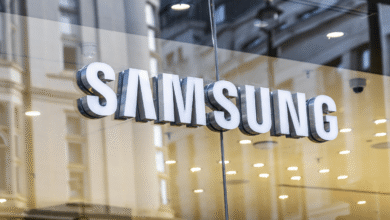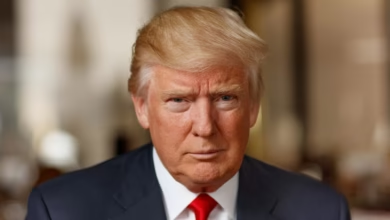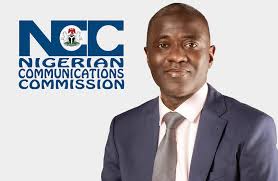FG moves to produce insulin locally, end reliance on importation
Nigerian Communication Commission (NCC) says the telecommunication sector in the country has attracted $1billion investment in the first half of 2025, following its market-driven pricing in the industry. This was revealed by the executive vice chairman of the NCC, Dr. Aminu Maida, during an interactive session with journalists recently. Maida noted that the decision had restored investors’ confidence and reversed years of under investment which led to slow network expansion and service quality improvement. He said that as at June 2025, operators were already receiving new equipment with expected upgrades and new site construction. The NCC boss further disclosed that the fresh investments would boost capacity, improve service quality and strengthen Nigeria’s competitiveness in the global telecom space. According to Maida, the move has made one operator who had been static in investing on network upgrade over the last three years to start doing something in that direction. He explained that when the NCC issued licences for the provision of services on the fifth generation (5G) technology, MTN Nigeria, Airtel Nigeria and Mafab Communications, all underestimated the huge challenges in the industry when they promised nationwide rollout of the services. Maida also said the Mobile Network Operators (MNOs) that got the licences “over-promised” to deliver services to their consumers, without minding challenges in the industry. He said the 50 percent tariff hike for end users of telecom services approved by the NCC to MNOs earlier in the year had started changing the dynamics by stopping the drought in both local and Foreign Direct Investments (FID).
Nigerian Communication Commission (NCC) says the telecommunication sector in the country has attracted $1billion investment in the first half of 2025, following its market-driven pricing in the industry. This was revealed by the executive vice chairman of the NCC, Dr. Aminu Maida, during an interactive session with journalists recently. Maida noted that the decision had restored investors’ confidence and reversed years of under investment which led to slow network expansion and service quality improvement. He said that as at June 2025, operators were already receiving new equipment with expected upgrades and new site construction. The NCC boss further disclosed that the fresh investments would boost capacity, improve service quality and strengthen Nigeria’s competitiveness in the global telecom space. According to Maida, the move has made one operator who had been static in investing on network upgrade over the last three years to start doing something in that direction. He explained that when the NCC issued licences for the provision of services on the fifth generation (5G) technology, MTN Nigeria, Airtel Nigeria and Mafab Communications, all underestimated the huge challenges in the industry when they promised nationwide rollout of the services. Maida also said the Mobile Network Operators (MNOs) that got the licences “over-promised” to deliver services to their consumers, without minding challenges in the industry. He said the 50 percent tariff hike for end users of telecom services approved by the NCC to MNOs earlier in the year had started changing the dynamics by stopping the drought in both local and Foreign Direct Investments (FID). Highlighting why the increase in tariff has failed to translate to improved service quality, Maida explained that such equipment are not what can easily be purchased on the shelf and that some of the equipment are yet to be built by the original equipment manufacturers. According to him, bringing the equipment into the country will require a process and that the “MNOs would need to book, pay, ship, pay for clearing at the ports, transport to sites, install and commission before customers would start feeling the impact.” Maida, however, admitted that installing the equipment nationwide will take some time and the installation process, which has already commenced in the North Central zone and Abuja, will soon be extended to other areas gradually. He disclosed that since the rollout of the technology in Nigeria less than 2000 5G sites have been built across the country, a situation he blamed on a combination of factors, including foreign exchange (forex) issue and difficulty securing land for new cell sites. On infrastructure protection, he said the NCC was working with the Office of the National Security Adviser (NSA) to design region-specific rapid response frameworks, blending community engagement with civil defence presence to tackle threats such as generator theft, poor security, and local disputes. Addressing the issue of low local content in the Telecoms industry, Maida stated that only three countries are responsible for the supply of low level software and hardware used and these are China that has Huawei and ZTE; Finland with Nokia and Sweden with Ericsson.
Minister of Innovation, Science and Technology, Uche Geoffrey Nnaji has said that Nigeria is taking a bold step to stop relying on importation of insulin but build a capacity to produce insulin locally. According to a statement by the head of Press and Public Relations Unit of the ministry, Pauline Sule, Nnaji disclose this at the Signing of Memorandum of Agreement (MoA) on the Sustainable Insulin Production in Nigeria between the Ministry, through its Agency, National Biotechnology Research and Development Agency (NABRDA) and the Shanghai Haiqi Industrial Company Limited of China, yesterday in Abuja.
The minister further said for decades’ millions of Nigerians living with diabetes have depended on imported insulin, often at high cost and limited availability, hence this agreement between the Ministry through its Agency NABRDA and the Chinese company, diabetic citizens in the country can now access their drugs locally at a low cost.
Nnaji emphasise that by localizing the insulin production, it will not only address a critical health need, but also create jobs, build technical expertise and position Nigeria as a regional hub for medical biotechnology which is in line with President Bola Ahmed Tinubu’s Renewed Hope Agenda. He applauded the initiative saying that, the Ministry is converting research into production, adding that the partnership underscores the deep friendship between the two countries and it demonstrates what can be achieved, when science, technology and international cooperation come together in service of humanity.
Speaking, the director-general of National Biotechnology Research and Development Agency (NABRDA), Abdullahi Mustapha said that the project is to transform research into practical homegrown solutions that addresses national needs. He also said the collaboration with the Chinese company reflects the country’s growing capacity to engage in high impact in biotechnology research development with a focus on healthcare innovation.
Earlier, general manager of Shanghai Haiqi Industrial Company, Bokai Shai said that the purpose of the collaboration is to enhance production of insulin in the country and also promote the development of Nigerian pharmaceutical industries.




